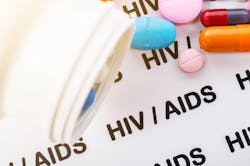HHS Announces $147 Million to Support Ending the HIV Epidemic
On April 27, the Health Resources and Services Administration (HRSA), an agency of the U.S. Department of Health and Human Services (HHS), announced via a press release that it has awarded more than $147 million to 49 recipients to advance the “Ending the HIV Epidemic in the U.S. (EHE)” initiative. The initiative is part of the Biden-Harris Administration’s efforts to decrease the number of new HIV infections in the United States by at least 90 percent by 2030.
The funding aims to assist states and metropolitan areas with the highest levels of HIV transmission get individuals with HIV access to essential care, support, and treatment. Additionally, the funding will support training and other resources for these areas.
The press release states that “Today’s awards include:
- Nearly $139.1 million to metropolitan areas and states to implement strategies and interventions to provide medical and support services to reduce new HIV infections in the U.S.; and
- $8 million to two non-profit organizations to provide training and other resources to recipients of EHE funds.”
Further, “The Ending the HIV Epidemic Initiative focuses on four key strategies:
- Diagnose all people with HIV as early as possible.
- Treat people with HIV rapidly and effectively to reach sustained viral suppression.
- Prevent new HIV transmissions by using proven interventions.
- Respond quickly to potential HIV outbreaks.”
The strategies expand on the Ryan White HIV/AIDS Program that supports medical care, medications, and support services for more than 576,000 people. Almost 90 percent of Ryan White clients that choose to receive care reach viral suppression. The national viral suppression average is 64.6 percent.
HHS Secretary Xavier Becerra was quoted in the release saying that “Ending the HIV epidemic requires us to reach people living with the virus where they are, and that’s exactly what this program allows us to do. Through this program and others, we will continue our work to destigmatize this deadly disease and ensure equitable access to testing and treatment.”
Sponsored Recommendations


